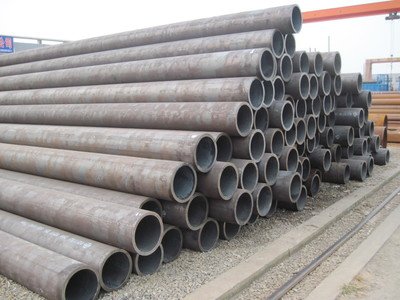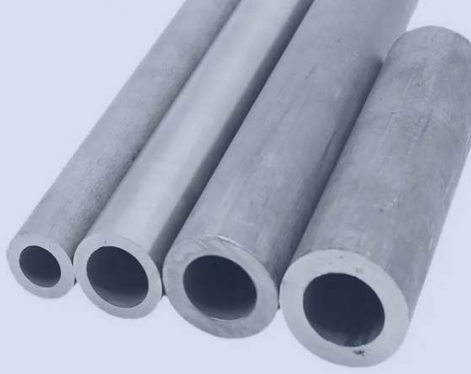Seamless pipes are composed of various elements in steel. These elements are combined in different proportions to form different mechanical properties of seamless steel pipes. The amount of any element will directly affect the mechanical properties of seamless steel pipes.
The elements that affect the performance of seamless pipes are
1. Carbon (c): As the carbon content increases, the yield point and tensile strength increase, but the plasticity and impact properties decrease. If the carbon content is too high, it is easy to cause unqualified intergranular corrosion. The boundary between steel and iron is controlled by the carbon content. Carbon content < 2.11% is steel
2. Silicon (Si): Si is a deoxidizer and desulfurizer with high strength and hardness, which can improve the hot workability of steel.
3. Chromium (Cr): Chromium can significantly improve the strength, hardness and wear resistance of steel, but at the same time reduce plasticity and toughness.
4. Nickel (Ni): Nickel can increase the strength of the steel pipe, and can also maintain good plasticity and toughness of the steel pipe.
5. Molybdenum (Mo): Adding molybdenum to the steel pipe can improve the mechanical properties of the steel pipe.

6. Titanium (Ti): Titanium is a dehydrogenating agent in steel pipes. Reduce ergonomic sensitivity and cold brittleness. Adding a certain amount of titanium to the steel pipe has the ability to resist intergranular corrosion.
7. Phosphorus (P): Phosphorus is a harmful element in the steel pipe, which increases the cold brittleness of the steel pipe, deteriorates the splicing performance, reduces the plasticity, and deteriorates the cold bending performance. Usually, the lower the phosphorus content in the steel pipe is controlled, the better.
8. Sulfur (S): Sulfur is a harmful element in steel pipes, which causes hot brittleness of steel, reduces the ductility and toughness of steel, easily causes cracks during forging, and also reduces the corrosion resistance of steel. Therefore, the sulfur content must be controlled as low as possible.
9. Nitrogen (N): Ammonia can improve the strength, low temperature toughness and weldability of steel pipes. Increase the effect sensitivity, and the right amount of ammonia can improve the pitting corrosion resistance and strength of stainless steel pipes.
The elements that affect the performance of seamless pipes are
1. Carbon (c): As the carbon content increases, the yield point and tensile strength increase, but the plasticity and impact properties decrease. If the carbon content is too high, it is easy to cause unqualified intergranular corrosion. The boundary between steel and iron is controlled by the carbon content. Carbon content < 2.11% is steel
2. Silicon (Si): Si is a deoxidizer and desulfurizer with high strength and hardness, which can improve the hot workability of steel.
3. Chromium (Cr): Chromium can significantly improve the strength, hardness and wear resistance of steel, but at the same time reduce plasticity and toughness.
4. Nickel (Ni): Nickel can increase the strength of the steel pipe, and can also maintain good plasticity and toughness of the steel pipe.
5. Molybdenum (Mo): Adding molybdenum to the steel pipe can improve the mechanical properties of the steel pipe.

6. Titanium (Ti): Titanium is a dehydrogenating agent in steel pipes. Reduce ergonomic sensitivity and cold brittleness. Adding a certain amount of titanium to the steel pipe has the ability to resist intergranular corrosion.
7. Phosphorus (P): Phosphorus is a harmful element in the steel pipe, which increases the cold brittleness of the steel pipe, deteriorates the splicing performance, reduces the plasticity, and deteriorates the cold bending performance. Usually, the lower the phosphorus content in the steel pipe is controlled, the better.
8. Sulfur (S): Sulfur is a harmful element in steel pipes, which causes hot brittleness of steel, reduces the ductility and toughness of steel, easily causes cracks during forging, and also reduces the corrosion resistance of steel. Therefore, the sulfur content must be controlled as low as possible.
9. Nitrogen (N): Ammonia can improve the strength, low temperature toughness and weldability of steel pipes. Increase the effect sensitivity, and the right amount of ammonia can improve the pitting corrosion resistance and strength of stainless steel pipes.









